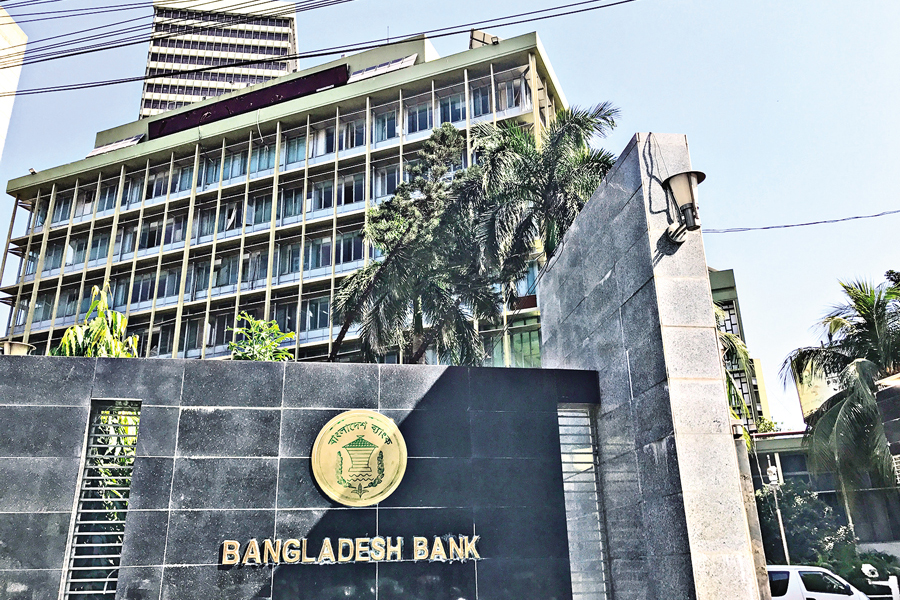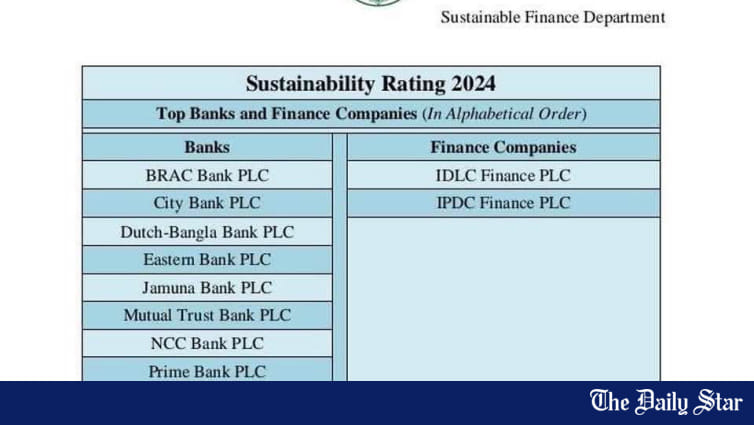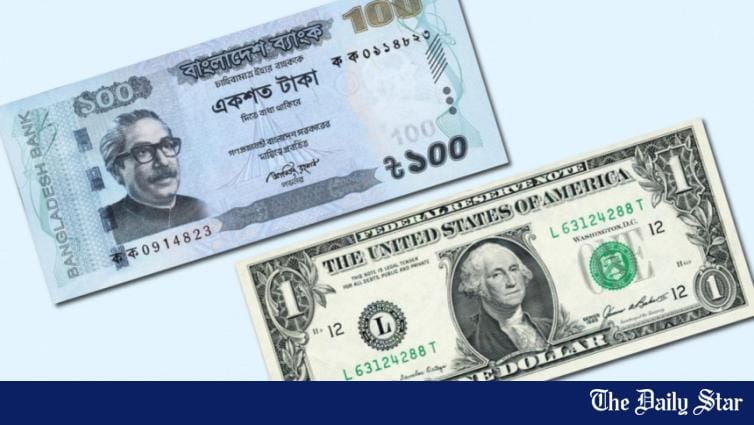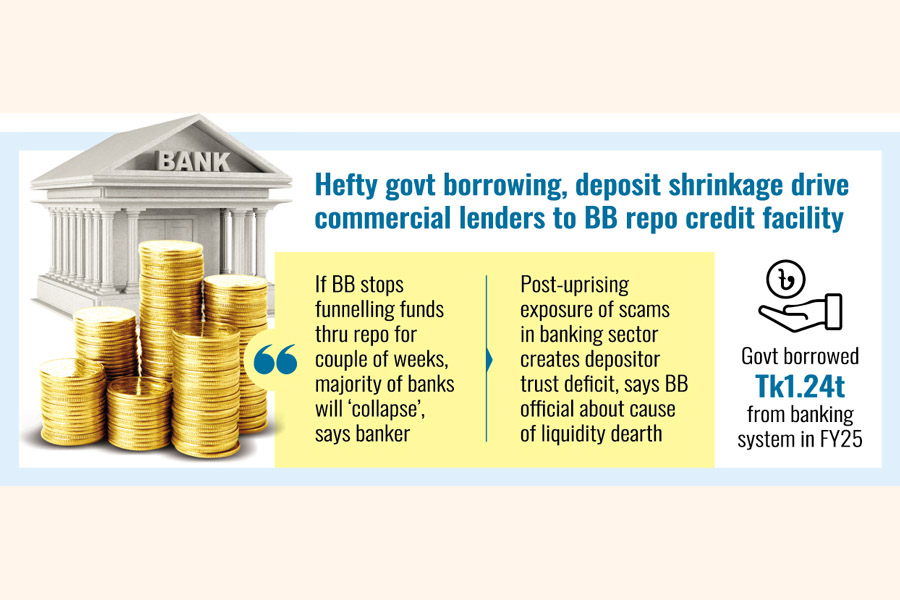Saif
Senior Member
- Messages
- 14,629
- Reaction score
- 7,628
- Origin

- Residence

- Axis Group

- Copy to clipboard
- Thread starter
- #201

Why central bank independence matters
In a landmark step toward central bank independence, the interim government has reportedly drafted the 'Bangladesh Bank Order, 2025', aiming to elevate the central bank to the status of a constitutional body. Currently, the central bank operates as a 'body corporate' under the Bangladesh Bank Order
Why central bank independence matters
Atiqul Kabir Tuhin
Published :
Jul 16, 2025 22:47
Updated :
Jul 16, 2025 22:47

In a landmark step toward central bank independence, the interim government has reportedly drafted the 'Bangladesh Bank Order, 2025', aiming to elevate the central bank to the status of a constitutional body. Currently, the central bank operates as a 'body corporate' under the Bangladesh Bank Order, 1972, and is meant to be autonomous. But political interference, as was evident during the Awami League regime, seriously undermined its autonomy, leading to a cascading effect on the broader economy, from hyperinflation to the near collapse of the banking sector. As a result, there have been discussions and recommendations, including from the International Monetary Fund (IMF), to amend the Bangladesh Bank order to grant the central bank more autonomy, particularly concerning monetary policy and governance of the financial sector.
The crucial role of an independent central bank in achieving price stability is widely acknowledged. As economist John Maynard Keynes famously remarked, price stability should be the foremost goal of monetary policy, a goal unattainable without central bank independence. Keynes believed that a central bank, free from political influence, is better positioned to focus on maintaining stable prices, which is fundamental for a healthy economy. Empirical studies support this view, showing that countries with more autonomous central banks tend to manage inflation more successfully. Citing the experiences of several emerging markets in recent decades, experts argue that central bank independence is the most effective monetary policy governance model to date.
Under such a framework, price stability is achieved by separating monetary policy decisions from the grip of political influence. The separation helps counteract political business cycles. These cycles occur when governments pursue populist and expansionary policies in a bid to ensure their re-elections. While such policies, like increased public spending or easy credit, might initially boost economic activity and garner popular support, it invariably leads to inflationary pressures in the long run. An independent central bank can act as a bulwark against such short-sighted political maneuvering, focusing instead on long-term economic stability.
In the context of Bangladesh, it is not difficult to see the benefits of adopting independent central bank model. In fact, the lack of price stability and the soaring of inflation into the double digits domain under the previous Hasina government serve as a stark example of the cost of printing money to manage outsize fiscal spending. Instead of challenging the regime's pernicious policies, the then subservient BB governors did everything to pander to the whims of the government. From artificially managing the exchange rate and enforcing 'nine-six' caps on bank lending rates, to turning a blind eye-if not actively colluding-to the plundering of state-owned and several private commercial banks, and increasing money supply by printing new money, the policy failures of the central bank during the AL regime were beyond acceptable limits. Had the central bank been truly autonomous, much of the inflationary pressure and the banking sector's distress from rising non-performing loans (NPLs) could be avoided.
Against this backdrop, the proposal to grant Bangladesh Bank constitutional status is both timely and essential. However, simply recognising the BB as a constitutional body won't suffice as numerous existing constitutional bodies - such as the Public Service Commission, Election Commission, and even the judiciary - have not been immune to brazen political interference.
The draft BB order proposes, among other provisions, the formation of a search committee tasked with preparing a shortlist of candidates for the positions of governor and deputy governors. Based on the committee's recommendations, the Prime Minister would nominate candidates. But the appointment as well as removal of the Governor and Deputy Governors will require parliamentary approval. And the governor will be accountable to parliament.
However, in Bangladesh's political culture, monetary policy issues are rarely debated in Parliament. Even under the existing BB order, the Governor is technically accountable to the parliamentary standing committee. Yet, over the past decades, not a single Governor was seen being questioned by Parliament, not even following the unprecedented cyber heist when hackers stole close to 100 million dollars from the reserves. So, legislation alone is not enough, what matters is strong political will for its genuine enforcement.
To shield Bangladesh Bank from political interference, experts underscore the importance of establishing clear and stringent criteria for the appointment of the Governor and Deputy Governors. They argue that the Prime Minister should not have unchecked authority to appoint candidates at will. Instead, the formation of a search committee should be clearly defined and it should be empowered to recommend individuals who are not only technically competent and experienced but also independent-minded and capable of resisting political pressure. Legal provisions are essential, but their effectiveness ultimately depends on the mindset and integrity of those in power. Even if the law guarantees central bank autonomy, no institution can operate independently unless its leadership genuinely upholds that spirit.
Atiqul Kabir Tuhin
Published :
Jul 16, 2025 22:47
Updated :
Jul 16, 2025 22:47
In a landmark step toward central bank independence, the interim government has reportedly drafted the 'Bangladesh Bank Order, 2025', aiming to elevate the central bank to the status of a constitutional body. Currently, the central bank operates as a 'body corporate' under the Bangladesh Bank Order, 1972, and is meant to be autonomous. But political interference, as was evident during the Awami League regime, seriously undermined its autonomy, leading to a cascading effect on the broader economy, from hyperinflation to the near collapse of the banking sector. As a result, there have been discussions and recommendations, including from the International Monetary Fund (IMF), to amend the Bangladesh Bank order to grant the central bank more autonomy, particularly concerning monetary policy and governance of the financial sector.
The crucial role of an independent central bank in achieving price stability is widely acknowledged. As economist John Maynard Keynes famously remarked, price stability should be the foremost goal of monetary policy, a goal unattainable without central bank independence. Keynes believed that a central bank, free from political influence, is better positioned to focus on maintaining stable prices, which is fundamental for a healthy economy. Empirical studies support this view, showing that countries with more autonomous central banks tend to manage inflation more successfully. Citing the experiences of several emerging markets in recent decades, experts argue that central bank independence is the most effective monetary policy governance model to date.
Under such a framework, price stability is achieved by separating monetary policy decisions from the grip of political influence. The separation helps counteract political business cycles. These cycles occur when governments pursue populist and expansionary policies in a bid to ensure their re-elections. While such policies, like increased public spending or easy credit, might initially boost economic activity and garner popular support, it invariably leads to inflationary pressures in the long run. An independent central bank can act as a bulwark against such short-sighted political maneuvering, focusing instead on long-term economic stability.
In the context of Bangladesh, it is not difficult to see the benefits of adopting independent central bank model. In fact, the lack of price stability and the soaring of inflation into the double digits domain under the previous Hasina government serve as a stark example of the cost of printing money to manage outsize fiscal spending. Instead of challenging the regime's pernicious policies, the then subservient BB governors did everything to pander to the whims of the government. From artificially managing the exchange rate and enforcing 'nine-six' caps on bank lending rates, to turning a blind eye-if not actively colluding-to the plundering of state-owned and several private commercial banks, and increasing money supply by printing new money, the policy failures of the central bank during the AL regime were beyond acceptable limits. Had the central bank been truly autonomous, much of the inflationary pressure and the banking sector's distress from rising non-performing loans (NPLs) could be avoided.
Against this backdrop, the proposal to grant Bangladesh Bank constitutional status is both timely and essential. However, simply recognising the BB as a constitutional body won't suffice as numerous existing constitutional bodies - such as the Public Service Commission, Election Commission, and even the judiciary - have not been immune to brazen political interference.
The draft BB order proposes, among other provisions, the formation of a search committee tasked with preparing a shortlist of candidates for the positions of governor and deputy governors. Based on the committee's recommendations, the Prime Minister would nominate candidates. But the appointment as well as removal of the Governor and Deputy Governors will require parliamentary approval. And the governor will be accountable to parliament.
However, in Bangladesh's political culture, monetary policy issues are rarely debated in Parliament. Even under the existing BB order, the Governor is technically accountable to the parliamentary standing committee. Yet, over the past decades, not a single Governor was seen being questioned by Parliament, not even following the unprecedented cyber heist when hackers stole close to 100 million dollars from the reserves. So, legislation alone is not enough, what matters is strong political will for its genuine enforcement.
To shield Bangladesh Bank from political interference, experts underscore the importance of establishing clear and stringent criteria for the appointment of the Governor and Deputy Governors. They argue that the Prime Minister should not have unchecked authority to appoint candidates at will. Instead, the formation of a search committee should be clearly defined and it should be empowered to recommend individuals who are not only technically competent and experienced but also independent-minded and capable of resisting political pressure. Legal provisions are essential, but their effectiveness ultimately depends on the mindset and integrity of those in power. Even if the law guarantees central bank autonomy, no institution can operate independently unless its leadership genuinely upholds that spirit.







